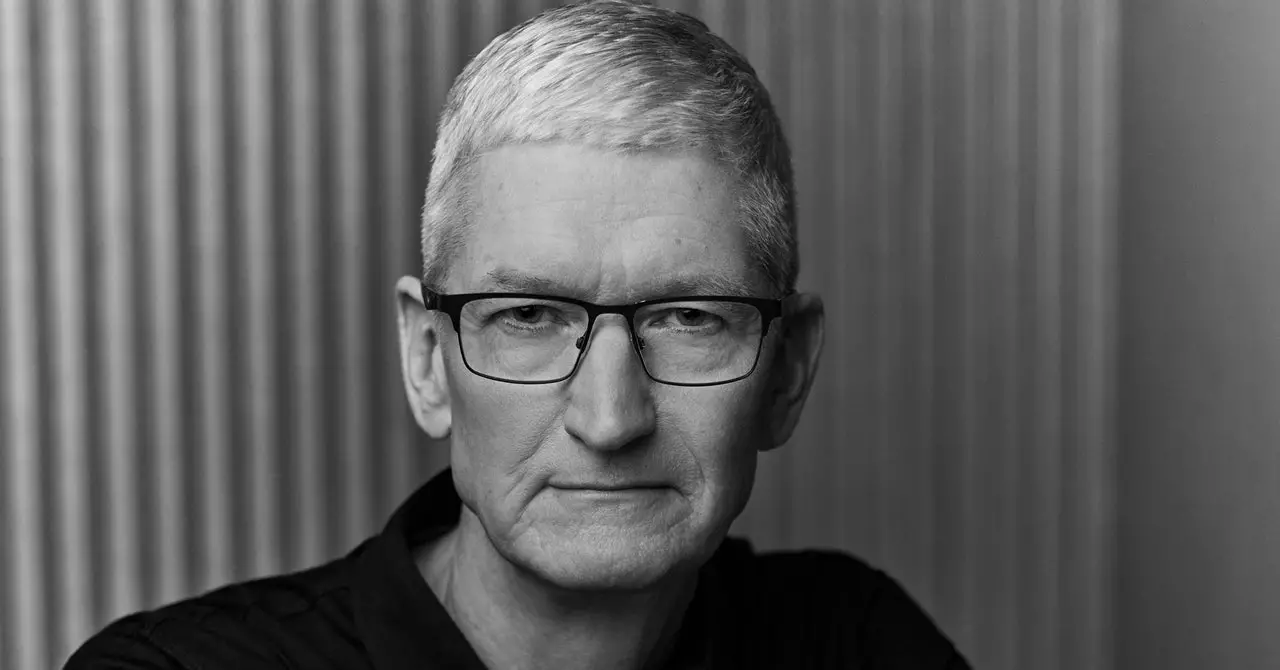In the tech landscape, where innovation is a daily expectation, Apple stands as a titan with a reputation for carefully curated and revolutionary products. My recent visit to the Apple Park campus brought forth not only nostalgia from my earlier tour with CEO Tim Cook but also a sense of urgency regarding Apple’s imminent play in the generative AI arena. With the tech sector navigating pivotal shifts, I sought to glean deeper insights into Cook’s vision and strategy surrounding the impending launch of Apple Intelligence—an initiative seen by many as overdue.
As I walked through the iconic circular design of Apple Park, now vibrant and bustling, I couldn’t help but reflect on the immense investment of $5 billion that was made with a long-term perspective. Cook, known for his calm demeanor, emphasized during my earlier visit that committing to such an innovative space was “a 100-year decision.” His words echo the brand’s philosophy of deep future orientation, suggesting that Apple is in it for more than just immediate gains. Today, as I prepare to converse with Cook again, the atmosphere buzzes with anticipation and uncertainty in the context of rapid technological advancements.
While other tech giants have been quick to capitalize on the generative AI boom, Apple’s approach has been methodical. Companies like Google and Microsoft have stolen headlines and captured market share with swift launches of various AI-powered tools. Apple, on the other hand, hasn’t rushed into the fray; instead, it prepares to enter this competitive arena with a sense of purpose—resolutely convinced that being last to the game doesn’t equate to being the worst.
Rather than a mere reactionary measure, Cook maintains that this strategic entry into AI has been in the works for years. The hiring of Google’s former AI chief, John Giannandrea, indicates a clear intention to cultivate a robust AI framework. Simultaneously, Apple’s withdrawal from the much-rumored smart-car project underscores a pivotal strategic pivot; redirecting resources and talent toward integrating sophisticated AI capabilities into their established product lines. This liquidity of strategy suggests that Apple is not only committed to innovation but also to fine-tuning its existing framework for future AI functionalities.
The launch of Apple Intelligence represents more than just a technological advance; it symbolizes a realignment of Apple’s product ecosystem. The ability to integrate AI directly on devices ensures that the power lies in the hands of the users, emphasizing privacy—a pillar of Cook’s leadership ethos. Unlike many competitors who push for cloud-dependent solutions, Apple’s commitment to localized data processing could be a game-changer for users who prioritize their privacy.
Central to Apple’s narrative surrounding AI is the commitment to user privacy. This philosophy is becoming increasingly relevant in a landscape beset by frequent data breaches and privacy scandals. Cook’s assertion that AI tools will operate primarily on users’ devices, mitigating reliance on cloud computing, paints a picture of a company that not only innovates technologically but also staunchly defends its customers’ digital rights.
The forthcoming features, such as emoji creation through verbal prompts and the Image Playground, are exciting novelties. However, it is the foundational principle of privacy that sets them apart within the ambitious global AI dialogue. In an age where user trust is eroded by breaches, Apple lays claim to a distinct position by demonstrating that the best innovations can coexist with consumer protection.
At the heart of Apple’s ambitions is the realization that the true measure of success lies not in innovative features alone but in the reception they receive from consumers. Tim Cook’s charisma may charm journalists and industry experts alike, but ultimately, it is the end-users who will dictate the longevity of Apple Intelligence. Should this initiative falter in its initial stages, observers predict that Cook, undeterred, will continually promote improvements in future updates—promising that each iteration will redefine user experience.
Throughout my interactions with Cook, it’s evident that he embodies a calm, deliberate approach. A leader forged in decisiveness, yet known for his ability not to display stress publicly, is precisely what Apple needs as it ventures into an unpredictable future. The stakes have never been higher, and in this critical juncture, all eyes will remain fixed on how Cook orchestrates Apple’s next monumental leap into the world of AI.
As the anticipation builds for the launch of Apple Intelligence, one thing is certain: the world will be watching and waiting to see if Apple’s legendary commitment to quality, privacy, and user-centric design will prevail in yet another technological revolution.


Leave a Reply